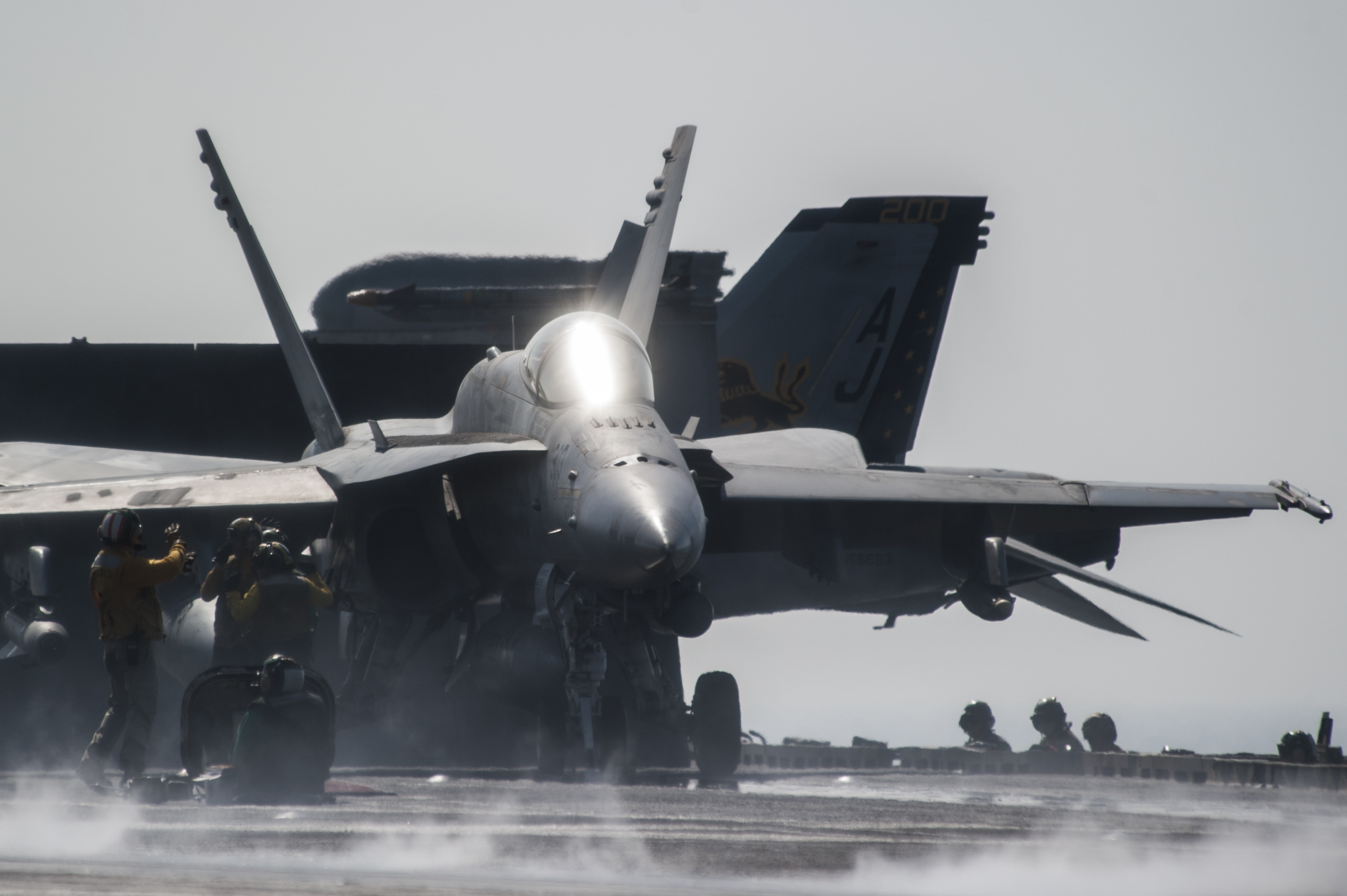
The first Iraq War was called Operation Desert Storm, the second Iraq war was called Operation Iraqi Freedom, but what will the third Iraq war be called?
A few weeks ago I proposed that a new campaign medal was in order for the current operations in Iraq and Syria. A growing chorus of voices are now lining up in support of this proposal.
This effort to initiate the process for creating a new campaign ribbon that will recognize those involved in the fight against the Islamic State of Iraq and Syria (ISIS or ISIL) forces has revealed that the current operation has no name.
Until now, every military operation — large or small, kinetic or peace keeping — is given an operational title to help define the effort. Pentagon press secretary, Rear Adm. John Kirby’s was recently asked about the name of the operation.
His response was, “I know of no plans at this time to name it.” This is at odds with past precedence, and more stunning is the fact that no explanation has been offered as to why this large coalition effort against ISIS remains nameless.
This is a strange turn of events. Especially in light of the fact that the emergent mission in response the Ebola crisis in Liberia has already been coined Operation United Assistance. Perhaps we shouldn’t read too much into this campaign with no name, or perhaps we should?
Even the early non-kinetic operations over Bosnia-Herzegovina in 1995 had an operational title (Operation Joint Endeavor), and at each iteration of NATO’s ten-plus year involvement in the Balkans, the operational name changed to reflect the mission. At present, the lack of an operational campaign title is only adding to the mixed messages and confusion surrounding this operation. The absence of a name gives the impression that our leaders are reluctant to admit we are in a new war.
President Barack Obama has been referring to the conflict as a, “sustained counter-terrorism operation.” That’s fine, after-all we shouldn’t expect this to be defined as a war. The U.S. hasn’t declared a war since World War II — despite the fact that U.S. forces have engaged in no fewer than 11 defined combat operations enfolding more than 35 of the past 70 years.
Whatever you want to call it, this kinetic “thing” occurring today in Iraq and Syria is a war by any definition. Just like every service member engaged in the Korean “police action” or the Vietnam “conflict” knew—they were at war.
Also of relevance to this conversation, President Barack Obama added in his Sept. 10 speech to the nation, “It will take time to eradicate a cancer like ISIL.” In this same speech he clearly outlined the objectives. Obama doesn’t seem confused about the objectives or the potential for a protracted effort to achieve these objectives. So why the confusion at the Pentagon? We may never know, but it’s time to stick an operational label on the Third Iraq War.
Once the campaign has a name, it will need a new campaign medal to assure that proper recognition is afforded to those that are serving, and those that will serve in the months, or years, to come. I do not disagree with those commentators that contend that this operation is an extension of the war on Islamic extremists that began after the 9-11 attacks. But just as in World War II, there were separate campaign ribbons to denote each major theater campaign in the war.
Military Times staff writer Andrew Tilghman reported on Oct. 6, that “a Pentagon official told Military Times last week that the roughly 1,700 troops serving in Iraq would be eligible for a Global War on Terrorism Expeditionary Medal.”
That’s a step in the right direction; however, in the major post 9-11 wars to date, service members could earn either the Global War on Terrorism Expeditionary Medal (GWOTEM), and/or the Operation Enduring Freedom/Operation Iraqi Freedom campaign ribbon depending on the length of time, and the combat location. For instance, during a 60 consecutive-day deployment to Afghanistan, a service member could earn both the GWOT-E medal and the OEF campaign medal. Each award requires 30 consecutive (or 60 non-consecutive) days in the declared area.
It would be wrong for the U.S. Government to limit recognition of the forces engaged in this fight to the GWOTEM. There are three good reasons why. First, the precedence for separate campaign medals has already been set with the OEF Afghanistan campaign medal (10/01 – present), and a separate OIF campaign medal (3/03 to 12/11). Bottom line, history past and present supports the fact that a defined, protracted, combat operation warrants a campaign medal.
Second, this time around, our leaders have clearly stated that the campaign against ISIS will likely be a protracted campaign that could take years. That fact alone means that those flying in harm’s way, or serving as advisors on the ground, deserve to know what the definition of this operation is, and be recognized for their contributions in support of it. Finally, a name for the campaign offers political clarification for both the U.S. forces and the rapidly growing coalition of allies. As Clausewitz famously states, “war is a continuation of politics by other means.” This political clarification is essential if there is to be any hope for success in meeting the stated objectives.
In the lens of history, President Obama will own this campaign whether his administration names it, or not. Labeling it, defining it, and recognizing those that are conducting it will only increase the odds that Obama’s war will have a satisfactory outcome.




